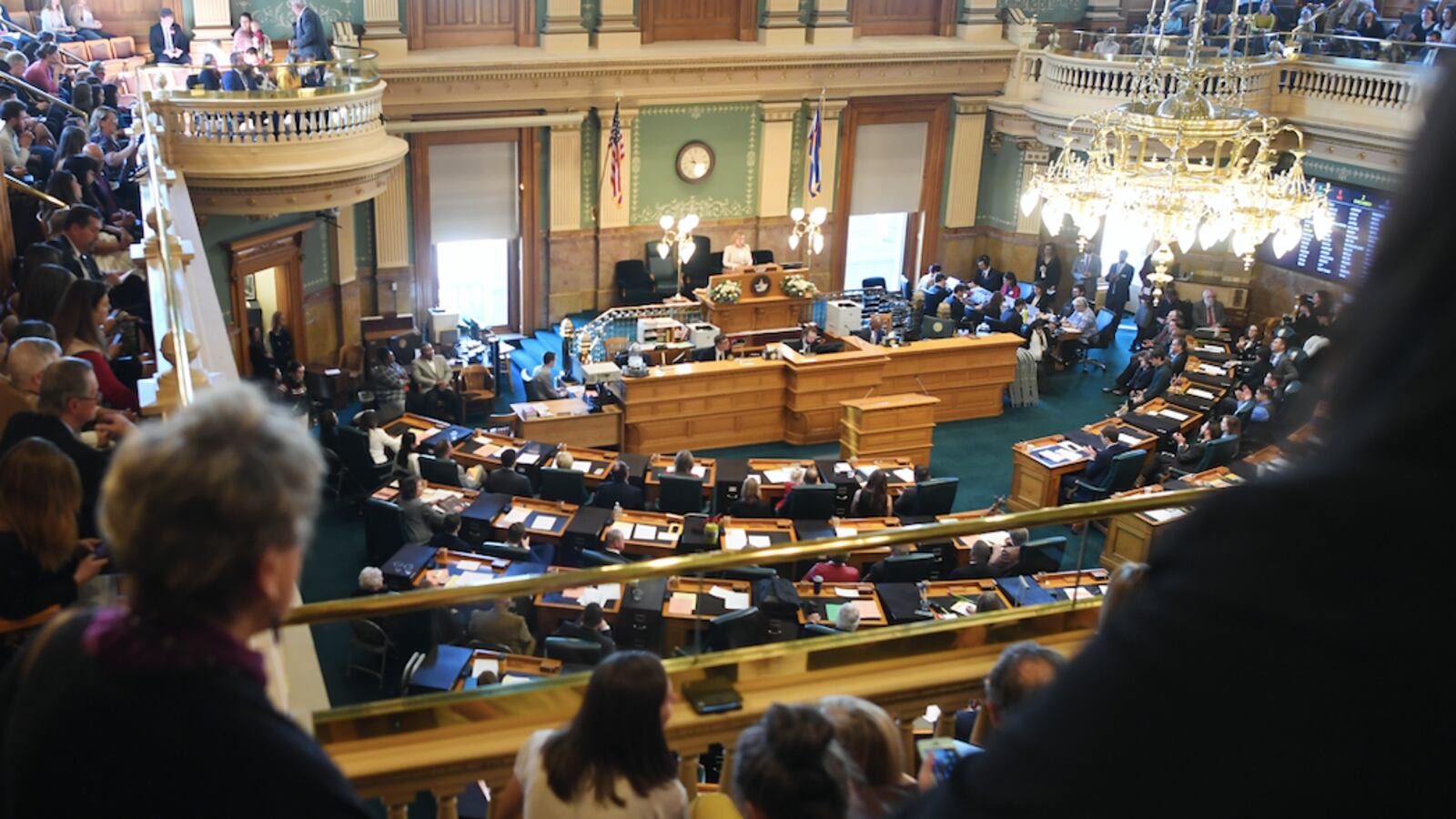Democrats opened the 2020 session of the Colorado General Assembly with pledges to invest more in education, in particular student mental health and school safety, and to keep working on “longer term school funding solutions.”
But the topic got relatively little attention amid a broader agenda that includes ambitious proposals for paid family leave, college loan forgiveness, lowering health care costs, and expanding gun control.
“We need to defend our residents … and ensure that they are afforded the protections every Coloradan deserves,” Senate President Leroy Garcia, a Pueblo Democrat, said in his opening remarks Wednesday. “This means opportunity for affordable higher education, stable housing, and paid family leave. It also means access to quality teachers, job training, and a streamlined transportation system.”
The lack of attention to education reflects both the major accomplishments of 2019 — Speaker of the House K.C. Becker called last year’s session, which included the passage of full-day kindergarten, “one of the most historic, productive sessions in our state’s history” — and fiscal realities.
Education is just one of many underfunded priorities in state government, with transportation needs looming large. And in November, Colorado voters rejected Proposition CC, which would have allowed the state to retain more revenue for education from existing taxes. It was the most recent of many unsuccessful efforts to raise more revenue.
Becker, a Boulder Democrat, was talking about transportation funding when she said that to make progress, “members on both sides of the aisle will have to bring forward specific solutions that voters haven’t already rejected and that are serious attempts at bipartisan solutions.” But it’s just as true for education.
Becker praised the bipartisan work of the special committees that met in the off-season to work on school safety, higher education affordability, and early childhood issues. Several of the first bills introduced by Democrats in both the House and Senate came out of these committees, including proposals to improve the Safe2Tell reporting system, to allow students an excused absence to attend to mental health needs, to provide more support for mental health of very young children, and to allow non-traditional students to get college credit for work experience.
Another special committee on school finance did not produce legislation, but top lawmakers said they’ll continue to work on the issue. House Majority Leader Alec Garnett, a Denver Democrat, said he expects more conversation this session on the “foundations” of school funding.
Absent from the discussion on opening day: Gov. Jared Polis’ proposed $27 million expansion of state-funded preschool.
Republicans, meanwhile, saw an opportunity to put their own stamp on the agenda. Education featured prominently in the speeches of House Minority Leader Patrick Neville of Castle Rock and Senate Minority Leader Chris Holbert of Parker, and Republican lawmakers held a press conference Wednesday afternoon to roll out a package of bills that they said polled well with the public and won’t cost a lot of money.
“Our problem is not a lack of money,” Neville said on the floor of the House. “We’re spending more than ever. It’s a lack of imagination when it comes to offering parents and students more choices, when it comes to setting the right priorities, when it comes to putting students first.”
These proposals range from notifying middle school students of opportunities to take college classes in high school to providing transportation stipends to students who want to change schools because they’ve been victims of violence to making more information available to parents about school curriculum.
The Republican education bills include several ideas that were rejected by Democratic-controlled committees last year, including bonuses for highly effective teachers, tax credits for teachers who use their own money to buy classroom supplies, and automatic waivers from regulations for rural districts.
Asked how Republicans would get these bills across the finish line when Democrats control both chambers, state Rep. Colin Larson of Littleton said he believes the failure of Proposition CC requires both sides to recommit to making modest changes to help Colorado students with existing resources. He said he’s also taking a hard look at where he can compromise to make his legislation more palatable to the other side.
Two proposals would put more money in the pockets of some teachers. State Sen. Paul Lundeen of Monument is making a second effort to set aside $50 million for bonuses for the 47% of Colorado educators who are deemed highly effective in the state evaluation system, and a bipartisan proposal from Republican state Sen. Kevin Priola of Brighton and Democratic state Rep. Bri Buentello of Pueblo would give stipends to highly effective educators who teach in low-performing schools.
The Colorado Education Association, which has made teacher pay its top priority for 2020, opposed Lundeen’s proposal last year.
“Educator pay is not up to par as it is,” said Amie Baca-Oehlert, president of the state teachers union. “We shouldn’t be talking about bonuses until pay is better across the board.”
The union is backing a proposal, not yet introduced, that would create a dedicated fund that districts could tap to increase educator pay.
Follow education legislation with our 2020 bill tracker.

